Psychological Tendency in Education:
Before the development of the psychological tendency in education, the educands were forced to accept the ideals of teachers, bookish knowledge, the burden of the curriculum, repressive discipline etc. No consideration was given to the interests, desires, aptitudes, needs and feelings of the educands. This hampered the complete and harmonious development of the educands. Then the birth of Naturalism in education was witnessed as a reaction of this tendency. Naturalism stood for child-centred education which further gave rise to the psychological tendency in education. In the words of Munroe, “The psychological tendency in education was the reduction of naturalistic movement to scientific principles and to practical school-room procedure”.
Pestalozzi has the credit of giving practical shape to the psychological tendency in education for the first time. In order to understand psychological tendency, it is necessary to understand the chief characteristics of psychological tendency.
Chief Characteristics of Psychological Tendency:
Following are the chief characteristics of psychological tendency-
(i) Education should be based on Psychology- According to thinkers and educationists like Rousseau, Pestalozzi, Froebel, Herbert, Plato, Montessori, Draver etc., education should be based on psychology. In this connection, Plato writes, “A good teacher must know the pupil’s nature”.
According to Montessori, “The more a teacher knows of experimental psychology the more he knows how to teach”.
In the words of Draver, “Psychology is an important factor, we cannot solve the problems of education without taking the help of psychology”.
(ii) Importance of Child- According to the old viewpoint of education, the position of the teacher was considered equal to that of God. Since education was considered as a means to realize God, sometimes teacher was regarded as even greater than God. But today education has become child-centred. School teachers, curriculum, textbooks etc., are regarded as the means for the development of the personality of the child and prime importance is given to the personality of the child.
As written by K. Bhatia and B. D. Bhatia, “The most important principle of the new education is the recognition of the importance of the individual (child). Each child is to be regarded as a personality with a uniqueness about it”.
(iii) Necessity of the study of Child- It is the prime duty of the teacher that he should understand the original tendencies, needs, aptitudes and feelings of the children.
John Adams has rightly remarked, “To teach John Latin, the teacher must know John as well as Latin”.
Likewise Naturalist Educationist, Rousseau remarked, “The child is a book which the teacher has to learn from page top page”.
(iv) To impart education to a child considering him as Child- Since education has been based on psychology, education is imparted to a child in accordance with his ability, needs and capacity. In other words, it is now realized that the child cannot understand the things of the standard of adults and therefore, he should be imparted education according to his capacity.
An eminent educationist has rightly remarked, “Child is not so much a little man as he in making”.
(v) Importance of the Primary Life of the Child- After observing many practices of children, the psychologists have come to the conclusion that the early 5-6 years of the child are very important because in these years a foundation of what he has to become, is laid. It is due to this reason that we find that in developed countries, attention is paid to the building of the personality of a child from very early years.
(vi) Learning by Doing- According to the new viewpoint of education, learning by doing or activity has assumed much significance. Learning by doing or activity proves to be always helpful in their practical life.
In this connection, K. Bhatia and B . D. Bhatia write, “In other words, effective learning takes place, only through self-activity which is purposeful or according to a child’s need and interests and capacities”.
(vii) Importance of Play- In modern education, play occupies a very important place. According to psychologists and educationists, play is a natural and pleasure-giving tendency by birth. Therefore, education should be imparted through the medium of play. In modern times, the discovery of the Montessori Education Method, Dalton Plan of Education, Kindergarten Method, Project Method etc. took place due to the significance of play.
Emphasising the educational significance of play, T. P. Nunn rightly observes, “It is hardly extravagant to say that in the understanding of play lies the key to most of the practical problems of education”.
(viii) Importance of Freedom and Discipline- The importance of freedom and discipline has increased so much in modern education that scholars have started advocating for “Emanicpationsists Discipline”. As written in the book named “Board of Education”, If children are to find themselves they must be allowed a sufficient degree of freedom, if they are to develop their power to the fullest they must be prepared to accept the appropriate discipline and training”.
(ix) Importance of the principle of Individual Difference- According to the principle of individual difference in the new education, physical, mental and emotional distinctions arise in the children due to heredity, environment, intelligence, sex, economic condition and education. An attempt is being made to impart education keeping in view these differences.
James S. Ross has rightly said, “The doctrine of individual difference, then, has profoundly affected educational theory so far as instruction is concerned”.
(x) Status of Educator as the Friend, Guide and Brother- According to the old viewpoint of education, the status of the educator was equal to God. Children were scared of the teacher. But in the new viewpoint of education, an educator is regarded as a friend, guide and brother.
According to K. Bhatia and B . D. Bhatia, “It (New Education) has brought him down from the pedestal of a dictator and has given him the privilege of being a friend of children, their guide and brother”.
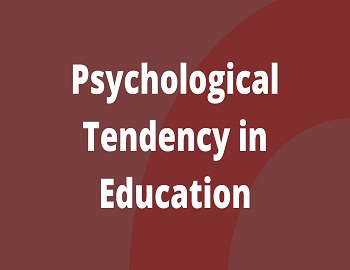

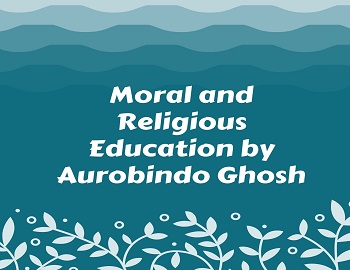
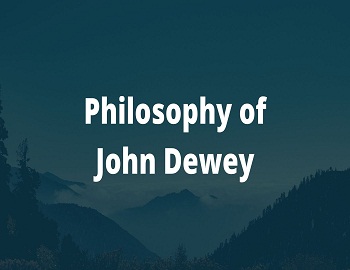
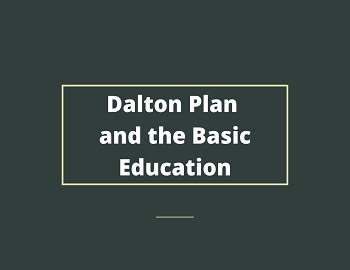
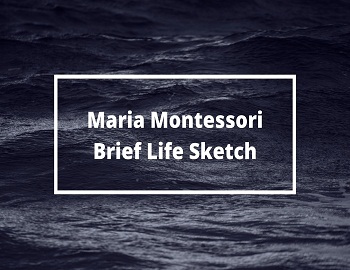
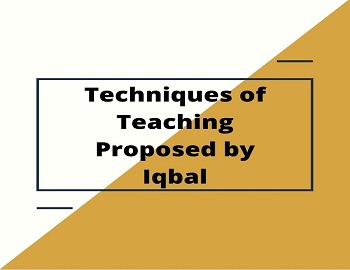

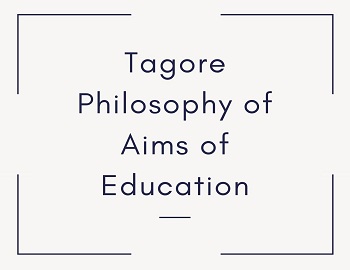
Comments (No)